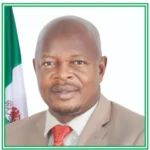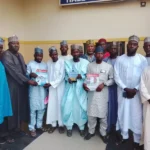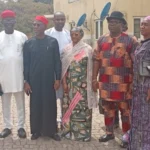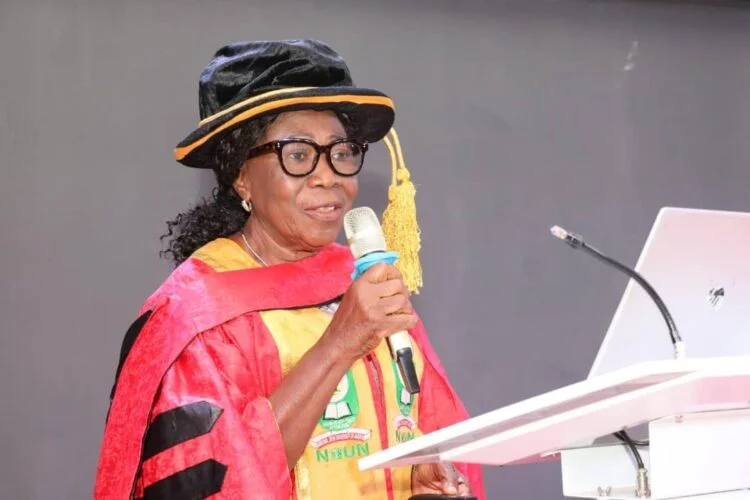By Emmanuel Afonne
Prof. Chibuogwu Nnaka, a lecturer with the National Open University of Nigeria (NOUN), has described professional teacher education as key to dismantling gender barriers in Science, Technology, Engineering, and Mathematics (STEM) careers.
Nnaka, who is a professor of Science and Technology Education, said this while delivering the 34th Inaugural Lecture of NOUN on Friday in Abuja.
The lecture was titled: “Professional Teacher Education: A Catalyst for Widening the Gateway to Gender Equity in STEM Education and Careers.”
Nnaka, who is an advocate of gender equity in science and technology education, centred her lecture on achieving equity in STEM which, according to her, must be the product of deliberate, strategic, and policy driven efforts, not mere happenstance.
She argued that teacher education served as a foundational pillar for shaping perceptions, building capacity, and transforming classrooms into gender inclusive learning environments.
“Teachers are the first contact learners have with STEM and thus must be professionally trained to challenge cultural biases, dismantle stereotypes, and mentor girls through their academic journeys in these fields.
“Teachers can either be gatekeepers of inequality or champions of inclusion.
“The difference lies in how they are trained,” she said.
Nnaka broke down STEM concept as more than an academic effort, presenting it as a critical driver of innovation, industrialisation, and national development.
She expressed concern over the persistent underrepresentation of women and girls in STEM, which she described as a major developmental shortfall for Nigeria.
The university professor drew attention to global and national statistics, noting that less than 30 per cent of researchers globally were women, while only 17 per cent of students enrolled in tertiary STEM programmes in Nigeria were female.
She said persistent cultural norms, gender stereotypes, inadequate mentorship, and male biased curricular content had remained formidable barriers.
“When women are missing in STEM, half the population’s potential is lost. Innovation becomes stunted, and national development suffers,” she added.
Drawing from her over four decades of academic research, administrative experience, and field-based interventions, Nnaka presented empirical evidence supporting her assertions.
Earlier in his opening remarks, the Vice-Chancellor of NOUN, Prof. Olufemi Peters, praised the lecturer’s contributions to education and her unwavering commitment to inclusion, policy advocacy, and excellence in teaching.
Peters, who was represented by the Deputy Vice-Chancellor (Technology, Innovation and Research), Prof. Godwin Akper, said the lecture was not just another academic engagement but a view into the future.
“It is a reflection of where we are as a society and where we must go if we are to break the chains of inequality and empower the next generation,” the VC said.
The Deputy Vice-Chancellor (Academic), Prof. Chiedu Mafiana, delivered the vote of thanks, applauding Nnaka’s lifelong commitment to education and social change.
Represented by Prof. Isaac Butswat, the Deputy Vice Chancellor (Academics), Mafiana said the lecture was more than an academic ritual.
“It is a national call to transform our classrooms, policies and systems in favour of equity, innovation and national progress,” he said. (NAN)(www.nannews.ng)
Edited by Chinyere Joel-Nwokeoma












